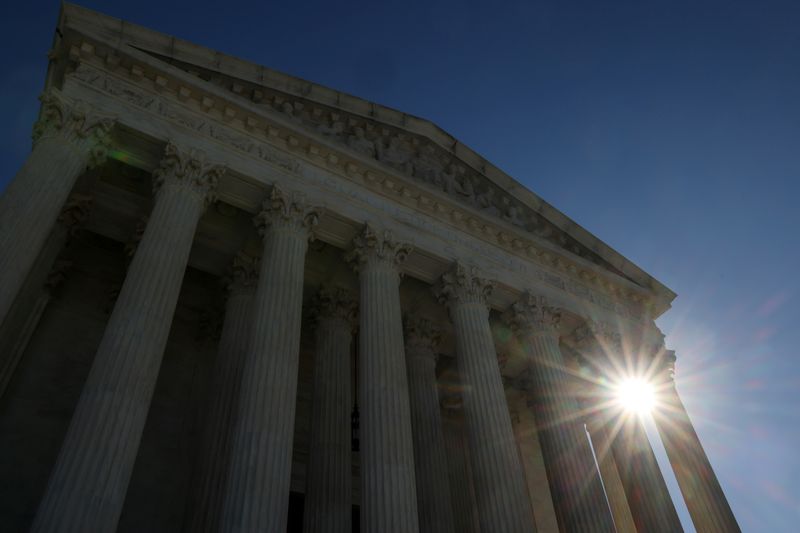(Reuters) – The U.S. Supreme Court on Thursday let three American Muslim men sue several FBI agents who they accused of placing them on the government’s “no-fly list” for refusing to become informants, rejecting a challenge to the lawsuit by President Donald Trump’s administration.
In an 8-0 decision, the justices upheld a lower court ruling allowing the men, all U.S. citizens or permanent residents who were born abroad, to sue for money damages under a 1993 federal law called the Religious Freedom Restoration Act. The men said they refused to spy on U.S. Muslim communities as allegedly requested by the FBI agents because doing so would have violated their religious beliefs.
The 1993 law was aimed at ensuring that the government had compelling reasons to substantially burden any person’s exercise of religion. The case hinged on a part of the law that provided for “appropriate relief against a government,” without defining what type of relief may be appropriate.
“The question here is whether ‘appropriate relief’ includes claims for money damages against government officials in their individual capacities. We hold that it does,” wrote conservative Justice Clarence Thomas, who authored the ruling.
The case, which began in 2013, involves New York City residents Muhammad Tanvir and Jameel Algibhah and Connecticut resident Naveed Shinwari. They said they were put on the no-fly list despite no evidence showing they threatened airline or passenger safety. The men’s separate encounters with the FBI spanned from 2007 to 2012.
Their inclusion on the no-fly list meant they could not visit family in Pakistan, Afghanistan and Yemen, sometimes for years. They said the actions of the FBI agents harmed their reputations and cost them employment.
As the lawsuit progressed, the government told the men there was “no reason” why any of the three could not take flights, indicating that they did not remain on the no-fly list.
A trial judge had thrown out the claims, but the Manhattan-based 2nd U.S. Circuit Court of Appeals in 2018 revived the case, ruling that the law allows individual federal officers to be sued for damages.
In its appeal to the Supreme Court, the Justice Department said that the 2nd Circuit ruling, if allowed to stand, would clear the way for a slew of lawsuits against countless federal employees that could deter them from performing their duties. These employees, it said, included national security officials, criminal investigators and correctional officers.
Justice Amy Coney Barrett, a Trump appointee who was not a member of the court when the case was argued in October, did not take part in the decision.
(Reporting by Andrew Chung in New York; Editing by Will Dunham)





















